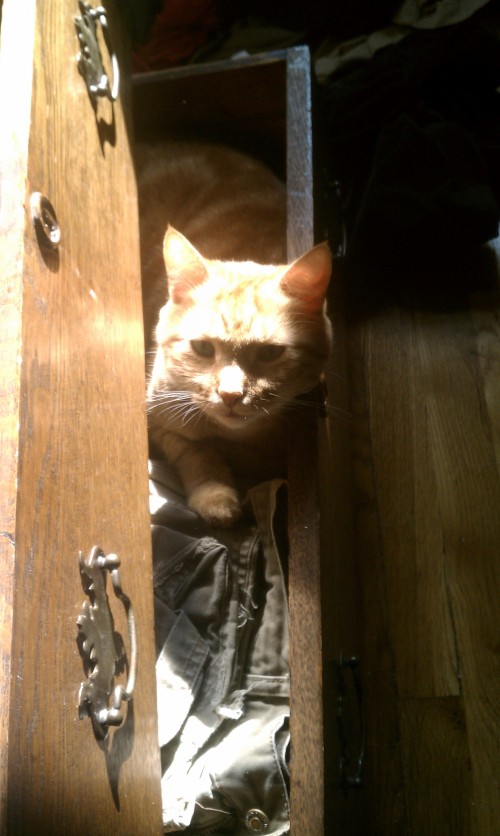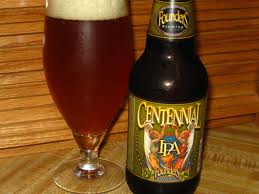Hello everyone the “millions and millions” of you out there, right?
(Note: Thanks Rock!)

The Rock
Anyway, its been quite a while since I last posted…again. As always, I’ve been immersed in the hall of wonders that is public librarianship. Since I last posted, many a thing has happened. Here’s a quick breakdown of my professional activities:
- I joined and attended meetings for the NJLA Reference Section where I proposed a lecture topic for the upcoming NJLA annual conference
- I have since found out that the selection committee gave me the go-ahead to give my presentation at NJLA this year! I’ll be speaking on “Programming for 20/30 Year Olds” and will be speaking with a co-presenter Kate Vasilik, librarian at the Piscataway Public Library (Thanks Kate!) – http://www.piscatawaylibrary.org/
- I spoke on a panel and tabled at the BCCLS Technology Boot Camp Event – topic: Technology in Library Programming
- I setup a several month series of programs with both SCORE (small business seminars) and Seelaus (personal finance workshops) – all free to the library
- Held the first DIY workshop partnering with Hoboken’s Makerbar – a local tech based Makerspace. We held a program where people learned how to use soldering irons and created their own ‘Joule Thief’ – an LED flashlight that runs on dead batteries! Looking to setup regular programming with this group and work on the beginnings of a ‘Makerspace’ at my library
- Will be giving a presentation to my library staff on possible Makerspace implementation ideas for our library along with the launching of a library staff recommendations blog (already done, just needs approval) via WordPress.
- Got in a bunch of new equipment (SLR digital photo/video camera, new audio equipment, Vegas Video software, etc.) and will be drafting a tech/social media plan to utilize this equipment in order to create the following: videos of library events on a YoutTube Channel for the library, screencasting of library computer/career workshops, creation of library Pininterest, expansion of social media, etc.
- New developments on contract negotiations which I am leading – unfortunately not good developments, but that’s a whole other blog post….
Personal Developments since my last post
- drank wine
- drank beer
- watched football
- HOCKEY has started (thank God!) – go Devils!
- the Governor (my cat)
- visited Virgin Gorda!
- …probably drank more beer
So yeah…that stuff doesn’t need much elaboration. Here’s some stuff though:

Then there’s the best product advertisement ever:

Alright, I digress.
Today’s topic is really about how I feel that there is a disconnect between what MLIS programs are teaching/what skills students learn vs. what is actually required in actual PUBLIC librarianship. As this is not a research paper I want to submit for a journal (though, perhaps later…) I will just stick to some anecdotal examples from my personal experience working at an urban library and getting my MLIS from Rutgers University , the fightin’ Scarlett Knights! I came up with a list of different skills and professional abilities that I think effective public librarians need right now and will need moving forward. I contrasted this with the education I received at Rutgers University’s MLIS program as well as reviewing their current course offerings – I got my degree about 4 years ago already…gulp! …and by ‘gulp’ I mean I’m drinking wine, 2011 Filon Spanish Garnacha to be exact.
My overall thought is that MLIS programs are our of sync with what public librarians should be learning, with perhaps too much focus on more ‘traditional’ librarian skills (which are somewhat less important today in my eyes) while only providing a peripheral and theoretical understanding of important contemporary technologies and skills. This gap creates a situation where newly minted librarians enter the field either lacking in significant areas or having to simply possess the needed skills independently of their MLIS program. In addition, I feel like this fuels the ever present issue of professional staff vs. support staff: there is a resentment from support staff in that they feel they possess or can possess the skills the professional staff exhibits. Now, while I find significant faults with the general MLIS program, I do feel that if nothing else obtaining the degree signifies that you at least have the following skills and abilities:
- Ability to learn and adapt to new ideas, technologies, etc.
- Personal management and organizational skills
- Library specific skills that would otherwise take years to learn ‘on the job’ – like the reference interview, knowledge of resources, critical thinking/research skills, cataloging skills
I’m leaving out things to be sure, but I feel that its not guaranteed that you will learn many of the other skills I find important for the contemporary public librarian.
Anyway, let’s progress then to the skills I feel are the most important for the public librarian now and moving in the future, based on my own experience. I’ll split this list up into two different sections: Required Skills and Recommended Skills
Required Skills
- Awareness/Knowledge of social services, aid services – basically, referring patrons to the correct service/organization or helpful resources based upon their need.
- Knowledge of the local community, including: Community leaders, local politics, local government, schools, local geography, local history, local natural history, local historical resources
- Technical assistance and knowledge – general computer troubleshooting, general knowledge of variety of standard and widely used software and online platforms (Microsoft Office, various email, standard video, photo and music editing software, etc).
- Social networking platform awareness, usage and skill – currently Facebook, Twitter, Youtube at least and then possibly things like Pinterest, Tumblr, etc, etc. This will change over time and skills will need to be adjusted and maintained.
- Upkeep and awareness of new technological and professional platforms and skills – this is a general requirement for any professional I think, but especially important for librarians and information retrieval, navigation and creation.
- Critical thinking/research skills – includes reference interview, knowledge of changing resources, valid resources, citation analysis, etc.
- Marketing and advertising knowledge and skills – strategies / content creation / Internet marketing and social media marketing
- Teaching Skills – ability to teach basic computer / bibliographic classes / awareness of general learning theory / presentation and speaking skills / material creation
- Community Organizing / Building Social Capital – this is very important in terms of positioning the library as a local pillar / future of public libraries likely involves partnerships, collaboration and joint projects / library future also probably involves a re-branding as an education and community center, more than a place for materials / ability to network, organize and navigate local politics, non-profit networks, etc.
- Professional Development and Trend Awareness – general working professional stuff
- Catalog Usage and understanding and advanced searching / expertise in various library cataloging software platforms
- Management skills – time, budget, and employee management skills / more than just theory – practical skills and problem solving abilities and knowledge
- Budgeting
- Fund Raising – grant writing / community fund raising / awareness of non-profit legal status and structure / etc.
- Needs Assessment / Community Assessment / Statistics / Surveys / etc. – ability to perform basic community needs assessments, polling and statistical data anaylsis
- Event planning and organization – everything from community networking to promotion to refreshments to strategies and goals.
- Leadership – this is especially needed at the administrative level – ties in with an understanding of management theory and skills and how to motivate and direct staff energy.
- Unique knowledge – unique knowledge in a particular genre, field or media type – especially in relevance to reader’s advisory, but also in the unique skills that can be brought to reference, library programming and strategic planning.
Now about some skills that may not be totally necessary, but probably recommended for at least a few of these skills:
- Database design and creation – especially including the technical skills to create a functional database
- Website design and creation – includes skills in variety of software, platforms and knowledge of at least basic coding
Whew! That seems like a lot – well, as it should be probably. We ARE professionals with master’s degrees, it stands to reason we should be significantly skilled. As I feel public libraries will function more as community and education centers in the future (in contrast to primarily places to borrow items of various sorts) I think many of these skills will be important for future public librarians to possess.
Many traditional librarian skills I’ve somewhat left out all together. Some of those skills not mentioned I feel are either only somewhat functional or altogether unnecessary I’m going to review the Rutgers MLIS current catalog of classes to make an analysis. However, from just my experience getting my MLIS (again, roughly 4 years ago) I can think of at least taking classes in the following areas that were either excessive or unnecessary:
- “Information Technology” – this class involved learned Microsoft Office programs and Access. For my money, it should be a prerequisite for entry into the MLIS program that you already have these skills. I mean…come on man.

- Cataloging – I know I’ll catch a bit of flak here, but I felt like I received far more training in cataloging that is going to be necessary for the average public librarian. If you specialize in cataloging, well that’s something different. However, with most librarians linking and processing materials already cataloged by OCLC or a central cataloging unit in your consortium/county system/main branch/etc., how much full cataloging is the average public librarian going to actually do? I have personally never written a MARC record and probably never will. Again, specialization is another issue. Certainly a librarian needs a knowledge of cataloging theory and premise, but perhaps more than one class is not necessary for the average public librarian.
There were other classes that had the right subject and premise, but I felt fell down in terms of execution and actual, practical value. Perhaps many of my classes were too separated in terms of theory from practical application. Mind you, this observation is coming from a person who studied Sociology and Philosophy as an undergraduate, so I love theory! Perhaps a little more of applying theory to practical situations would be ideal.
Let me know take a look at the Rutgers course offerings for this year – Winter/Spring 2013 and see how they stack up against what I feel are some of the most important skills for the future public librarian.
http://comminfo.rutgers.edu/component/cur,610/option,com_courses/sch,17/task,listing/
So in just taking a look at the general course listings page for the MLIS program at Rutgers I’ve come up with a few conclusions as well as a few questions. First, I’ll say that my original pessimism didn’t completely stand up, but it also didn’t totally fall down either. In the way of database design and a variety of technical skills the program does seem to be offering a variety of courses:
- Designing User-Centered Information Services
- Information Visualization
- Digital Libraries
- Multimedia Production
- Digital Library Technologies
- Interface Design
- Metadata
- Information Retrieval
- Database Design and Management
There are certainly a number of classes here that seem to deal with database design and the creation of some original library content – media, image, etc. Some of these courses offer the specific skills I was looking for – training in current software, coding, etc. However, they certainly do not all offer this specificity and several of them seem to stay within the realm of theory and design rather than actually building the database/content/etc. Still others offer some specific training and experience in a specific software, however the choice of software seems counter to forward thinking. For instance, while Database Design and Management seems to be the real deal (SQL, DBMS, etc.), though the Interface Design class seems to have students prototyping using Dreamweaver and Microsoft Powerpoint – not exactly the primary tools of web and/or database design. PP is simply not relevant and Dreamweaver seems to be fast slipping against a variety of online alternatives and total content management systems. Database design and creation seems to have a more robust offering of practical classes, though probably could have more. However, in regard to web design the descriptions of the classes still leave me wanting more in regard to obtaining experience and skills in specific and new web design/management tools or actually writing code.
My other categories didn’t fair as well:
Library/Staff Management – seems like there is one class offering. This focuses largely on management theory and learning from a few select books either pulled from the business field (not totally applicable) or from a very few books written in our field on that subject. Having taken this course, I can say that there is ample amounts of theory given, but looking back I feel that there again is a lack of practical knowledge in problem solving, employee management, generating staff morale, etc. However, this might be the result of my personal apprehension for anything that smacks of business/conference/motivational speaker/Meyers Briggs rhetoric. 🙂
My other categories (budgets, education theory, leadership, fundraising, community engagement/programming) ended up with roughly 1-2 classes offered in each subject with varying degrees of practical skill/knowledge.
- Community and Programming – 2 related classes – Planning Outreach and Interpersonal Communication (really more for inter-staff communication)
- Education – 1 class – Learning Theory
- Budgets and Fundraising – 2 classes, both budgeting – Collection Development and Management (related topic) and Financial Management of Libraries
- Social media – 2 classes – Understanding and Building Social Media and Social Media Seminar
- Needs Analysis/Statistics – 1 class – well, its not listed for this semester, but I know there is a statistics and analysis class offered
The community related programs touch on a outside basis to the things I’ve mentioned as important skills, but I feel that the offerings fail to address the future importance of programming/community collaboration/social capital. Also, there are many skills (navigating local politics, navigating non-profit organizations, creating community initiatives/partnerships, programming, innovative programming, program/event planning, etc.) that are not fully addressed by the single class offered. I feel that at least 1 – 2 classes on programming, designing library educational classes, and community collaboration/partnerships should be offered.
Education – while this single class that is offered is excellent (took it when I was in enrolled 🙂 ), its probably not enough.
Budgets – a couple of classes learning budgeting probably covers it. However, no grant writing classes (I remember one section being offered in the Summer/Winter sessions when I was there, which was difficult to get), no advanced community fundraising, no creating foundations/non-profit structure, etc. This is a very important issue for the future and more classes should be offered in this topic.
Social media – 1 class + a special seminar. Perhaps more should be invested here – special topics for social media: Social Media, Programming and Fostering Community Interaction / Social Media Advertising and Promotion, etc.
Advertising – other than being small portions of a variety of classes, I didn’t see a class that specifically focused on advertising in libraries – from content creation to strategies to online marketing tools/skills. This is certainly an area where more should be offered.
Conclusions:
I found that the Rutgers MLIS course offerings have more than I thought in a few areas (database design, web design to an extent). However, I also found that in some areas there is room for improvement (library management, social media applications, web design, education theory, content management software). Finally, a few areas were in big need of improvement – fund raising, community/social capital, library programming, and advertising. This picture isn’t a whole lot different than when I was there 4 years ago, which is probably not a good thing. While in some areas they are on the right track, there are several areas that are in big need of improvements. With trends putting more emphasis on following technological trends more energy will be put into those areas. However, from my general perception of research and publications within our field, I don’t see enough emphasis on the need for more education on things like programming and community skills, advertising, teaching abilities, and management skills to be hopeful about future curriculum. Even with technology skills, only part of the courses offered actually provide hands-on experience in new software, CMS, and other platforms. Overhaul of our MLIS programs and the directions of those programs are in need of some retooling in the future.
I know this has gone on foreverrrrrr….sorry about that! I will finish with some bullet list suggestions. Right after this:

Alright, now you’re back! Time for the big finish!
Suggestions:
- MLIS programs could have more classes that involve internships and training at actual libraries working on structured projects and partnered with librarians. I found that some of the best skills and information I received was through my internships at a public library working in its reference department as well as teaching bibliographic instruction (whoops, did I use the wrong term there :)) at a community college library. This could help gain practical skills and actual experience built around structured projects and bolstered with class instruction. Another benefit could be the creation of some unique and useful partnerships between MLIS programs and libraries – both could benefit (labor, skills, research, etc.). This could also open the door to more public library/university collaboration, which might also hopefully lead to more library field research focusing on PUBLIC libraries rather than academic!
- Tougher prerequisites for our MLIS programs. For instance – eliminating the need for an Information Technologies class by making that a prerequisite!
- Improved curriculum strategies and paths – there are a number of useful classes that are already available, but the guidelines for recommended course paths for the desired field (academic, public, school library, etc.) may need to be re-thought to emphasize these new aforementioned skills.
- Offer unique programs regularly – this may be a Rutgers specific issue, but I feel it would be helpful to offer those unique courses (social media, grant writing, statistics/research, etc.) that are currently offered every semester to make it easier for students to access
- Practical skills and experience should be emphasized in courses – experience in specific software (web design, database construction) or maybe internships to gain skills in community building, programming, management, etc.
In the end, librarians are going to have be a sort of jack-of-all-trade professionals and our MLIS programs should reflect that.
That’s it! You made it (or did you – you still here??). I’ll try to post more often from now – and with shorter posts!

























